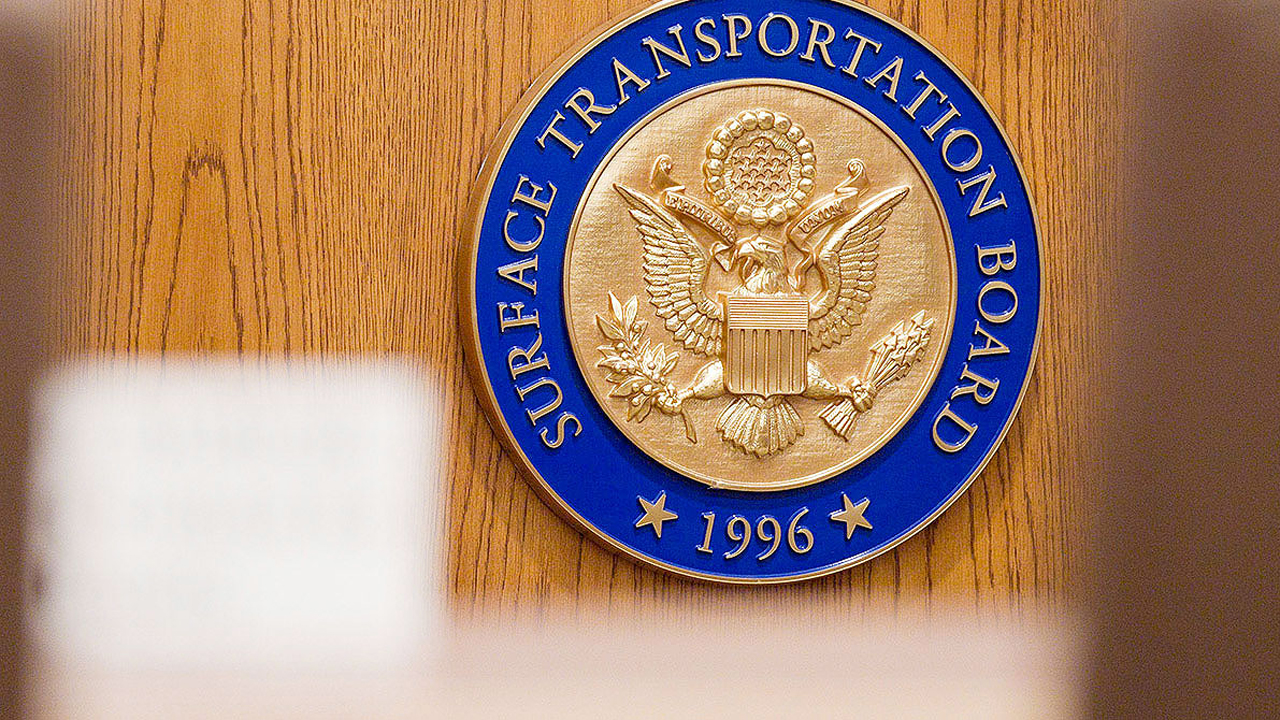
AAR to STB: No ‘Quick Fix’ to Service Problems
Written by Marybeth Luczak, Executive Editor
“The Class I railroads recognize that their recent service performance has not met many customers’ expectations,” the Association of American Railroads (AAR) wrote in a May 18 filing to the Surface Transportation Board (STB). But while the STB’s May 5 decision to release updated, more-comprehensive rules for reporting performance and employment metrics “reflects an understandable desire for quick action,” it was “not issued in a vacuum,” AAR pointed out.
“The Board is requiring service recovery plans and progress reports from the four largest U.S. rail carriers and is directing those carriers to participate in biweekly conference calls to further explain efforts to correct service deficiencies,” STB summarized in the announcement of its May 5 decision, which came a little more than a week after its April 26-27 “Urgent Issues in Freight Rail Service” hearing. “The Board is also requiring all Class I rail carriers to report more comprehensive and customer-centric performance metrics and employment data for a six-month period. In response to concerns raised at the recent hearing and related communications, the Board is taking this action to inform its assessment of further actions that may be warranted to address the acute service issues facing the rail industry and to promote industry-wide transparency, accountability, and improvements in rail service.”

“AAR members also respect and share the Board’s desire to address the situation quickly,” J. Frederick Miller Jr., AAR Counsel, wrote in the association’s May 18 filing (scroll down for download). “In fact, several Class I railroads had voluntarily begun providing the Board with relevant information before the Board’s decision. It is that respect that is driving AAR’s Class I railroad members to comply with the decision as best as they are able in this shortened reporting timeframe despite the legal concerns motivating this letter.”
But he explained that “[a]s the Board recognizes several times, there are other pending proceedings—including First-Mile / Last-Mile Service (EP 767), and Revisions to Regulations for Expedited Relief for Service Emergencies (EP 762)—that also are focused on the provision of service-related data or to which that data is relevant. Indeed, the pending FMLM proceeding presents the precise questions of whether certain data which the Board is ordering to be produced now—on an expedited and temporary basis without notice and comment and other rulemaking procedures and protections—is relevant, reliable, appropriate, and within the scope of the Board’s authority to order on a permanent basis. … The important procedural protections and substantive analyses required in regulatory proceedings must not be circumvented or rendered moot by the Board’s decision in this docket, or by the railroads’ voluntary compliance with the decision.”
He pointed out as an example that “there is no explanation by the Board of how specific pieces of requested information will assist it in monitoring the current service challenges. Nor is there any explanation why the Board’s current robust service reporting rules are insufficient for its purposes. Without notice and comment, there has been no opportunity for stakeholders to help tailor the data to be collected to the needs of the Board given the current circumstances in the United States. Nor could stakeholders ensure that the Board was ordering publication of information that would be useful to it and not confusing or misleading to the public.”
Additionally, he wrote that STB’s decision “contains no analysis or regard for the burdens it imposes. Generally, government collections of data must undergo a Paperwork Reduction Act analysis and should also contain a cost-benefit analysis—be it formal or informal—both of which help to ensure the necessity of the collection, while considering the burdens on the regulated entities. Though the Board does not yet conduct cost-benefit analyses, in the FMLM proceeding the Board has appropriately requested information to weigh the costs and burdens of the very data publication ordered here. Although this decision and the burdens it imposes are time-limited, the decision threatens to, but certainly should not, moot the cost-benefit analysis the Board indicated it would conduct in the FMLM proceeding.”
Miller summed up that the “Class I railroads appreciate the urgency of service problems being experienced by many customers and respect the Board’s efforts to respond and assist. As the Board has recognized, this is a complex situation and not one that has a ‘quick fix.’ Notwithstanding their deep concern about the relevance, utility and potential misuse of some of the information the Board has ordered produced, the railroads will undertake best efforts to comply while continuing to restore service to the levels customers deserve.”
Download the AAR’s May 18 filing below:



